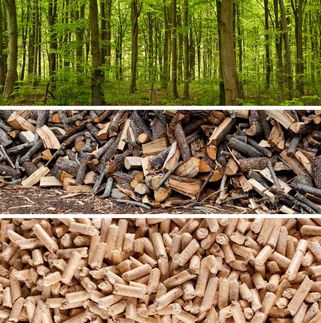Rise in wildfires may significantly degrade air quality, health in the future
Advertisement
As the American West, parched by prolonged drought, braces for a season of potentially record-breaking wildfires, new research suggests these events not only pose an immediate threat to people’s safety and their homes, but also could take a toll on human health, agriculture and ecosystems. The study, appearing in ACS’ journal Environmental Science & Technology, could help societies map out a plan to mitigate these effects in wildfire-prone regions.
Matthew D. Hurteau and colleagues point out that wildfires naturally occur in many areas around the globe. In response, human societies have harnessed the power of fire to better control wild blazes and minimize damage. But climate change also can impact the number and severity of wildfires. Understanding how these factors influence each other is crucial so that people can better prepare for the future and perhaps lessen the effects of the blazes. Previous studies have estimated the effect of climate change and population growth on wildfire patterns and the risk of damage to buildings and homes in California. Hurteau’s team wanted to expand on those findings and investigate six possible future climate scenarios.
Using several different models, they estimated that by 2100, emissions from wildfires in California will grow by 19 to 101 percent. They found that climate, not population growth or development, will likely be the driving force behind these increases. However, a rise in wildfires still will mean significant societal challenges, such as higher pollution levels, which can affect human health and aggravate respiratory conditions. Poor air quality also can lower crop yield, and forest health could suffer.
Other news from the department science

Get the chemical industry in your inbox
By submitting this form you agree that LUMITOS AG will send you the newsletter(s) selected above by email. Your data will not be passed on to third parties. Your data will be stored and processed in accordance with our data protection regulations. LUMITOS may contact you by email for the purpose of advertising or market and opinion surveys. You can revoke your consent at any time without giving reasons to LUMITOS AG, Ernst-Augustin-Str. 2, 12489 Berlin, Germany or by e-mail at revoke@lumitos.com with effect for the future. In addition, each email contains a link to unsubscribe from the corresponding newsletter.





























































